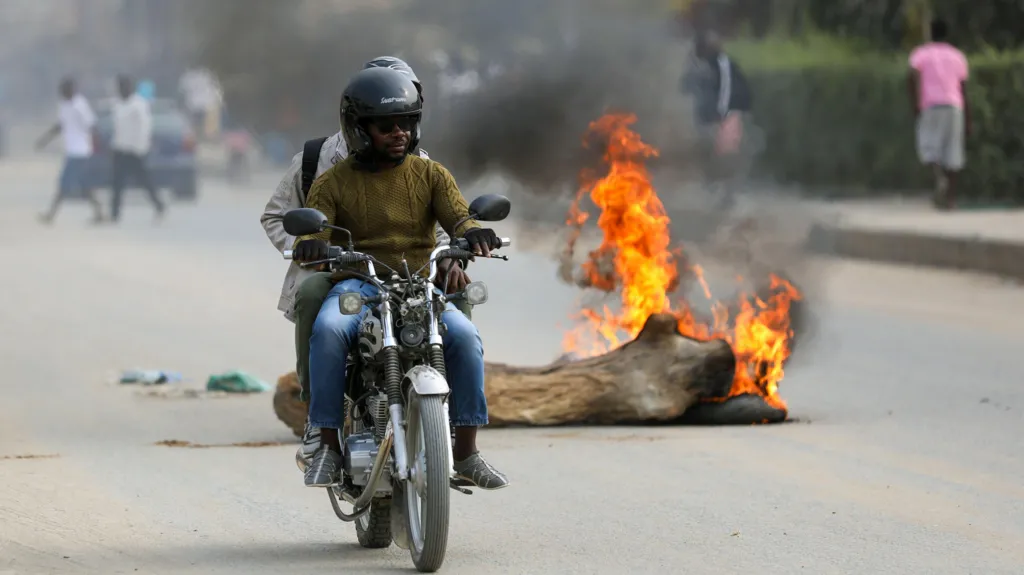POLICE in Angola say four people have been killed and 500 have been arrested after demonstrations in the capital, Luanda.
What began as a three-day strike by taxi drivers against rising petrol prices has escalated into one of the most widespread and disruptive waves of protest the country has seen in recent years.
Thousands of people joined demonstrations in the capital on Monday that saw roads blocked, shops looted, cars destroyed as well as clashes between demonstrators and police.
Since Monday night there have been reports of gunfire in parts of the capital.
Pockets of protests continued in Luanda on Tuesday, along with further clashes with police and more looting of shops, while demonstrations have spread further afield to the central city of Huambo.
“The fuel price issue is just the last straw that has reignited widespread public discontent… People are fed up. Hunger is rife, and the poor are becoming miserable,” a prominent local activist, Laura Macedo, told the BBC.
The strike was called by taxi operators in response to the government’s decision to raise the price of diesel by over 33%, a measure introduced in early July as part of plans to remove fuel subsidies in the oil-rich nation.
Not only has this resulted in higher fares for urban Angolans who rely on the taxis, but it has also driven up the price of staple foods and other basics – as suppliers who transport those goods by road are passing on their additional costs to consumers.
But President João Lourenço has dismissed such concerns, saying that protesters are using petrol prices as a pretext to undermine the government.
“Even after the increase, the price of diesel in Angola remains around 40 US cents [per litre], and there are not many countries in the world with prices this low,” he told CNN Portugal in a recent interview.
The average monthly wage in Angola is just 70,000 kwanzas ($75; £56), and a promise by the presidency to increase this to 100,000 kwanzas has not materialised.
As frustrations spilled over on Monday, groups of protesters took to the streets in various parts of Luanda, chanting against fuel price increases, nearly five decades of rule by the governing MPLA party and expressing their frustration with the country’s current state of affairs.







